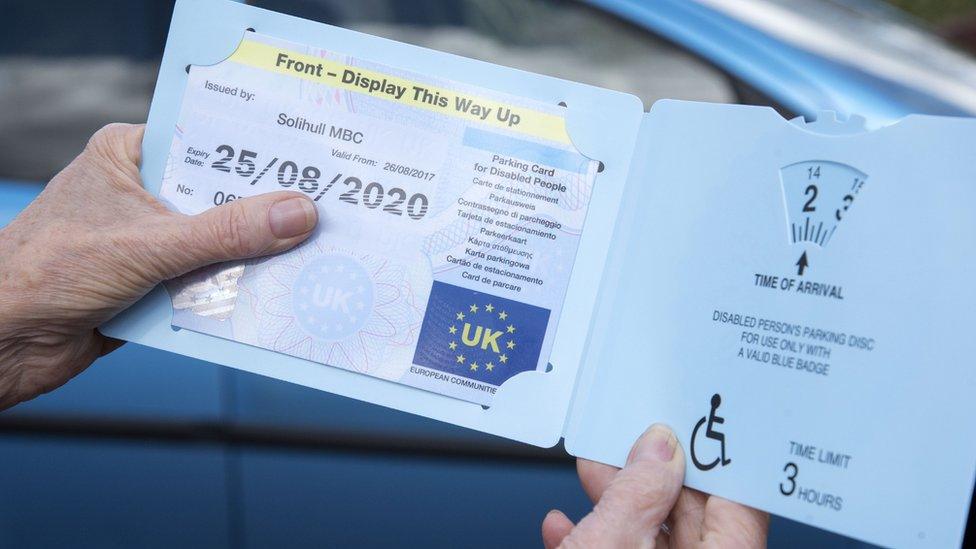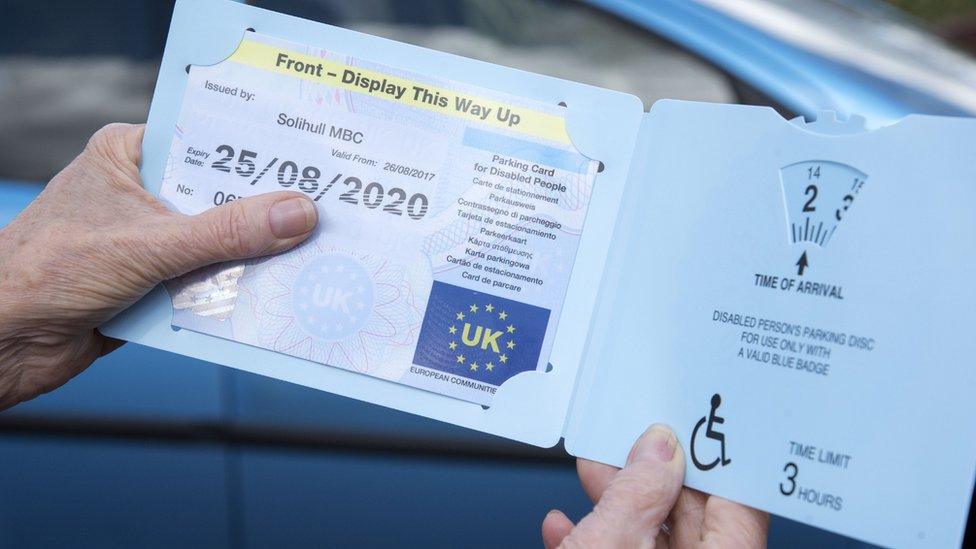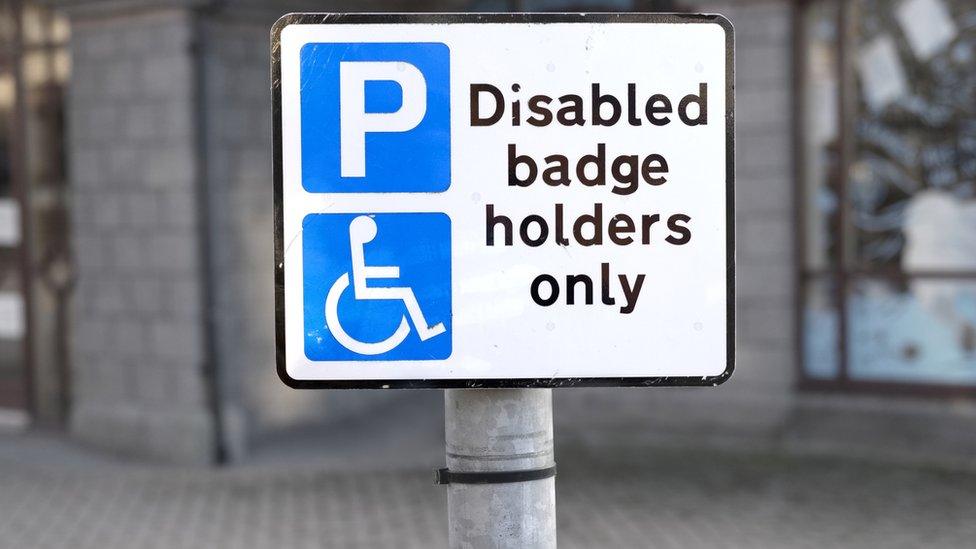Blue badge permits: People with 'hidden disabilities' to be eligible
- Published

People with hidden disabilities, such as dementia, may soon by able to access blue badge parking permits in England.
The scheme is being extended to include drivers and passengers with conditions such as autism or anxiety disorders - although eligibility will be decided by the local council.
Blue badge permits help disabled people to access goods and services, by allowing them to park close to their destination.
The change will come into force on 30 August, the government said.
Scotland and Wales have already implemented similar rules to include some mental impairments, but the criteria are yet to be altered in Northern Ireland.
The government said it would provide an extra £1.7m to help councils cope with the expected increase in applications.
'Watershed moment'
About 2.35 million people in the UK have blue badge permits because they have physical mobility difficulties or are registered blind.
The scheme means people with physical disabilities can park closer to their destination, making everyday tasks easier and reducing loneliness and isolation.
Under the new guidance, permits will be extended to those with hidden disabilities, including:
People who cannot travel without risk of serious harm to their health and safety or someone else's (such as young children with autism)
People who cannot travel without "very considerable psychological distress"
People who have very considerable difficulty when walking, meaning "both the physical act and experience of walking"
Transport Secretary Chris Grayling said he hoped the change would make "a real difference to people's lives".
"As a society we don't do enough for people with hidden disabilities," he said.
The government wants to improve public understanding so people whose disabilities are not visible will be able to use the badges without fear of being challenged unfairly.
The changes follow an 8-week consultation in 2018 and forms part of the government's drive for greater parity between physical and mental health.
Minister for Disabled People Justin Tomlinson said the extension of a scheme was a "watershed moment" with would allow people to travel "with greater ease and live more independent lives".
A review will also be launched to look at how councils can tackle fraudulent use of blue badge permits and improve the consistency of council enforcement.
More than 4,000 badges were stolen last year and councils prosecuted over 1,200 cases of misuse.
But 60% of councils did not pursue anyone for fraud, research found.
The review will also look at improving public awareness about the eligibility rules for badges - when it can and cannot be used - and how to return a badge when it is no longer needed, such as when the holder dies.
The Local Government Association (LGA), which represents councils in England and Wales, said the review would help it "crack down on dishonest motorists".
- Published29 July 2018

- Published7 November 2018

- Published31 December 2018
